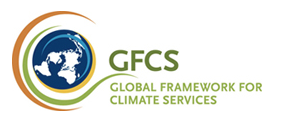A meeting of the Intergovernmental Board on Climate Services reviewed progress and challenges in the provision and use of climate services, including seasonal forecasts and drought and flood management tools.
Growing climate impacts highlight the “urgent need” for more cross-cutting climate services and partnerships to help communities adapt to extreme weather and increase disaster resilience.
 10 November 2014: A meeting of the Intergovernmental Board on Climate Services reviewed progress and challenges in the provision and use of climate services, including seasonal forecasts and drought and flood management tools. Growing climate impacts highlight the “urgent need” for more cross-cutting climate services and partnerships to help communities adapt to extreme weather and increase disaster resilience.
10 November 2014: A meeting of the Intergovernmental Board on Climate Services reviewed progress and challenges in the provision and use of climate services, including seasonal forecasts and drought and flood management tools. Growing climate impacts highlight the “urgent need” for more cross-cutting climate services and partnerships to help communities adapt to extreme weather and increase disaster resilience.
Transforming science into climate information products and services is “our collective business,” World Meteorological Organization (WMO) Secretary-General Michel Jarraud said during the meeting. He explained that many tools, such as scenarios of future potential risks and vulnerabilities, and maps and products that integrate climate data with hydrological, socioeconomic, health and other data, are being developed as part of the Global Framework for Climate Services (GFCS).
The GFCS is led by WMO and aims to improve climate services over the next ten years to help countries and communities cope with natural climate variations and human-induced climate change. About 70 nations currently have no or inadequate climate services. The GFCS links climate service providers with user communities to enable the factoring of weather and climate information into disease surveillance and control. In addition, seasonal forecasts are helping disaster risk managers plan for floods, landslides and drought, and infrastructure projects, city planning, and construction of dams and sea walls will be informed by longer-term climate change predictions.
The GFCS has four initial priority areas: food security; health; water; and disaster risk reduction (DRR). The Board meeting discussed whether to add energy as a fifth priority sector.
The Board also discussed actions on the ground, including a multi-sectoral two-year programme in Malawi and Tanzania, funded by the Norwegian government, which has brought together meteorologists with user communities. In addition, regional climate outlook forums are providing meteorological expertise to climate-sensitive sectors, and information is increasingly being downscaled to national and local levels. Consultations to fast-track action have been held in, inter alia, Belize, Burkina Faso, Chad, Dominica, Malawi, Mali, Niger, Senegal, South Africa and Tanzania.
WMO is also working to ensure that climate services are embedded in national climate change adaptation strategies. Thus far, 14 countries have contributed approximately 28 million Swiss Francs to the GFCS, with others providing in-kind expertise.
The Board met in Geneva, Switzerland, from 10-14 November 2014. [WMO Press Release] [GFCS Website]